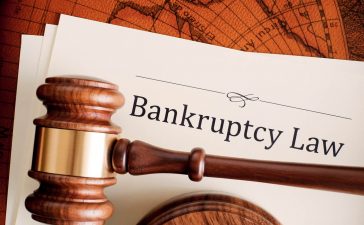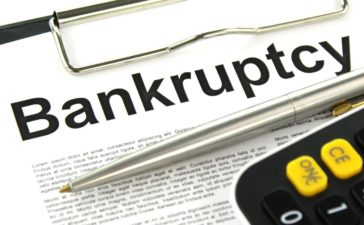In a terrible economy, it isn’t unexpected to see an expansion in chapter 11 filings. Nonetheless, when your obligations are released in your insolvency appeal, as far as possible your capacity to record another chapter 11 request for a specific number of years. This law was made to forestall chapter 11 misrepresentation and misuse. In the event that anybody could release obligation whenever banks would not have any desire to loan cash and would have cut off ramifications for economy, understudies and nearly everybody. How might anybody ever purchase a home or start a business? The Bankruptcy Code gives rules to when another liquidation can documented and under what part of the Bankruptcy Code.
Section 7 to Ch. 7
On the off chance that you have recently recorded a Chapter 7 or 11 insolvency and got a release, under §727(8) of the Bankruptcy Code, you can’t get another release in another Ch. 7 insolvency until in any event 8 years after the date you recorded your first Ch. 7 liquidation.
Section 7 to Ch. 13
On the off chance that you have recently documented a Chapter 7, 11, or 12, §1328(f)(1) demonstrates that you should hold up in any event 4 years from the date to record a Ch. 13 liquidation.
Section 13 to Ch. 7
Under §727(9), you can’t get a Chapter 7 release in the event that you have recently recorded a Chapter 12 or 13 liquidation inside 6 years before the date of documenting the Chapter 7 insolvency. In any case, the exemption to this standard is that you can get a release in the Chapter 7 liquidation if your past Chapter 13 insolvency paid at any rate 100% of the permitted unbound cases or 70% of the permitted unbound cases and the arrangement was proposed by the account holder in compliance with common decency and was the borrower’s earnest attempts.
Part 13 to Ch. 13
§1328(f)(2) gives that on the off chance that you got a release in a past Ch. 13 chapter 11, you can’t get a release in another Ch. 13 appeal recorded in the multi year time frame going before the date of the release request in the past Ch. 13 chapter 11.
Therefore, in rundown, on the off chance that you need to record a Ch. 7 insolvency, and you wish to document another Ch. 7 liquidation, you need to hold up 8 years from the date you documented the main Chapter 7 request before you will be qualified for a release. On the off chance that you need to record a Chapter 7 appeal and you have recently documented a Chapter 13 request, you need to sit tight for a long time. On the off chance that you had recently recorded a Chapter 7 appeal and you wish to document a Chapter 13 request, you need to hang tight for a long time. At last, on the off chance that you documented a past Chapter 13 request, you can’t record another Chapter 13 appeal in the multi year time span preceding the release request of the past Chapter 13 request.
Since you realize to what extent you need to hold up before you can record another liquidation appeal, what occurs on the off chance that you can’t sit tight for the necessary 8,6,4, or 2 years? Would you be able to in any case declare financial insolvency? The response to this inquiry is “Yes.” However, the catch is that despite the fact that you can declare financial insolvency, you don’t get a release. This implies you will at present be committed to pay for the obligations after your chapter 11 case is finished. Numerous individuals may ask, in the event that I don’t get a release of all my obligation, for what reason would it be a good idea for me to seek financial protection? There are a great deal of reasons why individuals may declare financial insolvency security: to stop an abandonment deal on their home, to make an installment intend to pay off their non-dischargeable expense obligation, to stop a duty of their ledgers and numerous others reasons.





